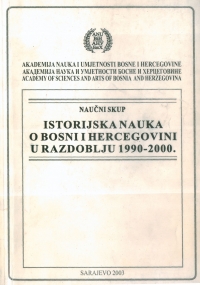
We kindly inform you that, as long as the subject affiliation of our 300.000+ articles is in progress, you might get unsufficient or no results on your third level or second level search. In this case, please broaden your search criteria.

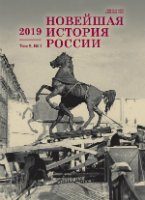
Review of: Kuzminykh A. L. “Military Captivity and Internment in the USSR (1939–1956)”, by: Suprun M. N.
More...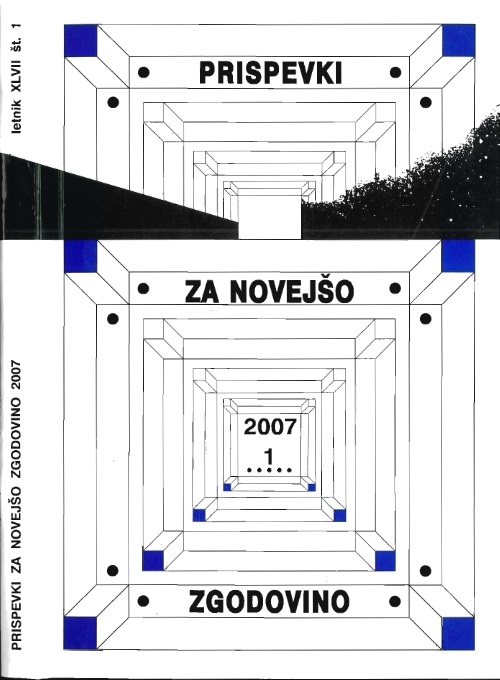
Between the two world wars, the Kolevje region in southeast Slovenia was home to a German minority known as the Kočevje Gennans (Gottscheer). In the 1930s, they seasonally migrated to Germany where they worked as peddlers, plying their traditional trade in tropical fruits and confectionery and organising games of chance. Many were enthusiastic about the new Nazi regime, attended short political courses and gradually became exponents of Nazi propaganda. Nevertheless, their primary concern in the economically depressed Koeevje region remained the earning of income. The paper describes the attitude of the Yugoslav authorities towards the Gattscheer peddlers and the growing tension between them alld the local Slovenes. A preserved list of the peddlers from the 1936/37 season is also analysed.
More...
The review of: Egon Pelikan: Tajno delovanje primorske duhovščine pod fašizmom. Primorski krščanski socialci med Vatikanom, fašistično Italijo in slovensko katoliško desnico - zgodovinsko ozadje romana Kaplan Martin Čedermac. Nova revija, Ljubljana 2002. 776 strani, ilustrirano (Korenine)
More...
The review of: Pieter Lagrou: The Legacy of Nazi Occupation. Patriotic Memory and National Recovery in Western Europe, 1945-1965. Cambridge University Press, Cambridge 2000, 327 strani.
More...
The author analyses the situation of the liberal and moderately conservative Christian socialist forces in the world between the two world wars, which faced three aggressive totalitarian regimes: Fascist, Nazi and Bolshevik. The Liberal and moderately conservative political forces found themselves in a subordinate and defensive position vis-à-vis the totalitarian regimes from the moment these emerged. After the First World War the liberal political system failed in its struggle against totalitarianism, unable to find a coalition partner either among the Socialists on the left, or the moderately conservative parties on the right. These, by and large, rejected anything liberal or socialist, showing more sympathy for fascism. Liberalism was rescued by Great Britain and the United States of America (F. D. Roosevelt). Only during the Second World War did renowned Catholics find their way into the anti-fascist coalition.
More...
The author deals with the question whether the Italian resistance between 1943 and 1945 was actually a civil war. He concludes that the resistance was also, but not solely, a civil war within the historic framework of the Second World War. The conditions for the outbreak of this civil war were maturing from 1919-1922. It only spread in the central and the northern parts of Italy, which were occupied by the Germans and where Mussolini's Social Republic government was in power. The interpretation of the resistance as a civil war has, for a long time, been rejected by Italian historiography as well as public opinion. In the light of recent socio-historic research into the phenomenon of divided memory this attitude has gradually started to change.
More...
The paper deals with the activities of the Slovene communists in Primorska during the Second World War, where the Communist Party of Slovenia often faced the dilemma of how to reconcile the national interests of its struggle with international ones. The most burning issues for the Slovene communists concerned their relations with the Italian population, the status of Trieste and their cooperation with the Communist Party of Italy in Primorska.
More...
On the basis of German archive documents, the author presents the economic situation of the greater part of Upper Carnolia under German occupation. The occupier imposed a Germanic totalitarian regime and a war economy, controlling the distribution of raw materials, energy and labour, fixing maximum prices and introducing coupons for the distribution of goods to the public. Industrial production was reorientated to serve the needs of the army, and agriculture modernised to some extent while crafts, trade and tourism suffered regression under the occupation. By 1943, the planned economic reform failed due to the shortage of labour, construction material and finance required for modernisation and new investments.
More...
Using written sources, the paper initially deals with the German discovery of a mass grave of executed Polish officers, prisoners of war, in Katyn near Smolensk, as well as the political reactions to this incident during and after the Second World War. The central part is dedicated to the response of the Slovenian underground and official press (also controlled by the occupying authorities), presenting different reports and positions on the event, and its political and social implications. The author concludes by pointing out that the two political camps in Slovenia, opting between the German and Soviet version of this incident, adopted totally opposite positions as to who was responsible for the execution.
More...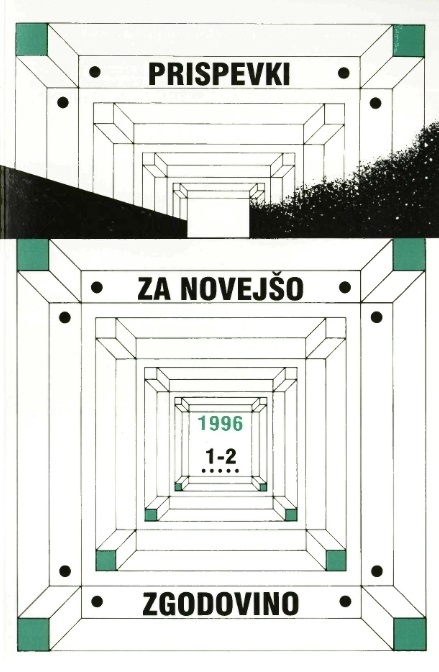
The review of: Mark Aarons and John Loftus: Ratlines. How the Vatican's Nazi networks betrayed Western intelligence to the Soviets. London, "Heinemann", 1991.
More...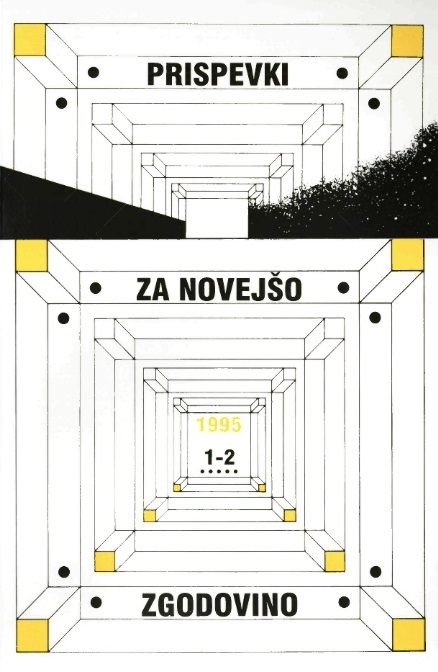
The review of: Bojan Godeša: Kdor ni z nami je proti nam. Slovenski izobraženci med okupatorji. Osvobodilno fronto in protirevolucionarnim taborom, Cankarjeva založba, Ljubljana 1995, 468 str.
More...
The review of: Silvo Grgič: Zločini okupatorjevih sodelavcev; 1. knjiga: Izven boja pobiti in na druge načine umorjeni, ranjeni in ujeti slovenski partizani. Društvo piscev zgodovine NOB Slovenije - Dolenjska založba, Novo mesto 1995, 559 str. (Partizanski knjižni klub, knjiga št. 15; Knjižnica NOV in POS, knjiga 87).
More...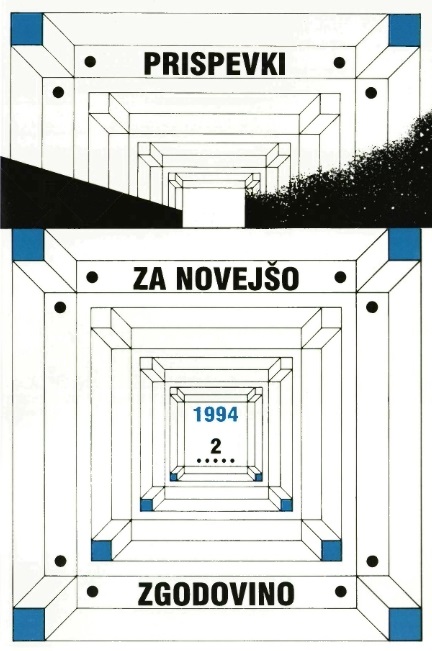
V poslednjih letih sem pogledal veliko večino gradiva nemškega okupatorja v Sloveniji v raznih arhivskih in drugih zavodih. Razen še vedno nedostopnega gradiva iz 2. svetovne vojne v graškem in celovškem deželnem arhivu je tako mogoče prikazati vire o rasnih pregledih Slovencev pod nemško okupacijo v letih 1941-1945. O rasnih pregledih in ocenjevanju Slovencev pod nemško okupacijo sem pisal predvsem v svoji monografiji Raznarodovalna politika v Sloveniji v letih 1941-1945 (Založba Obzorja, Maribor 1968, v srbohrvaškem prevodu 1979). Nekaj dokumentov sem objavil v zbirki Quellen zur nationalsozialistischen Entnationalisierungspolidk in Slowenien 1941-1945 - Viri o nacistični raznarodovalni politiki v Sloveniji 1941-1945, ki je izšla pri isti založbi v Mariboru 1980. leta (dalje: Ferenc, Quellen). V tukajšnjem poročilu o virih objavljam tudi nov vir, ki sem ga dobil šele pred kratkim, torej po izidu omenjenih publikacij. [...]
More...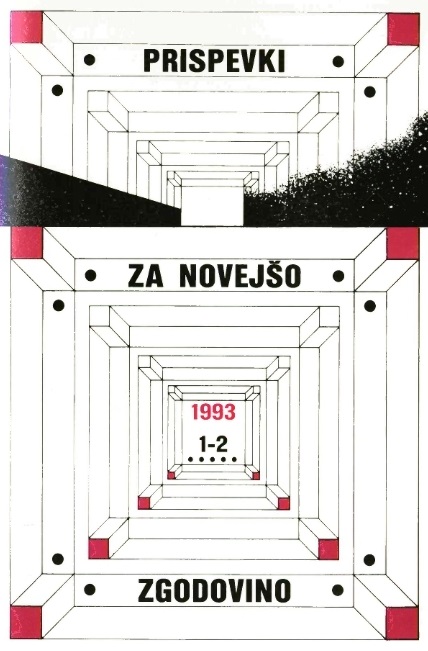
In February 1944, the Commission for the Investigation of Crimes Committed by the Occupiers and Their Accomplices was founded to collect and examine information about war crimes perpetrated in Slovenia. The author outlines the coverage of its work, the aims of the Commission and its results in the founders’ own press. He establishes the large political significance attached to the articles by those who were in charge of the propaganda work, the large number of such articles and the stereotypes used describing the work of the Commission. Among very typical were articles concerning the foundation, methodologies and importance of collecting reports about war crimes and public statements of the Commission including data about individual war crimes as well as victims of different categories.
More...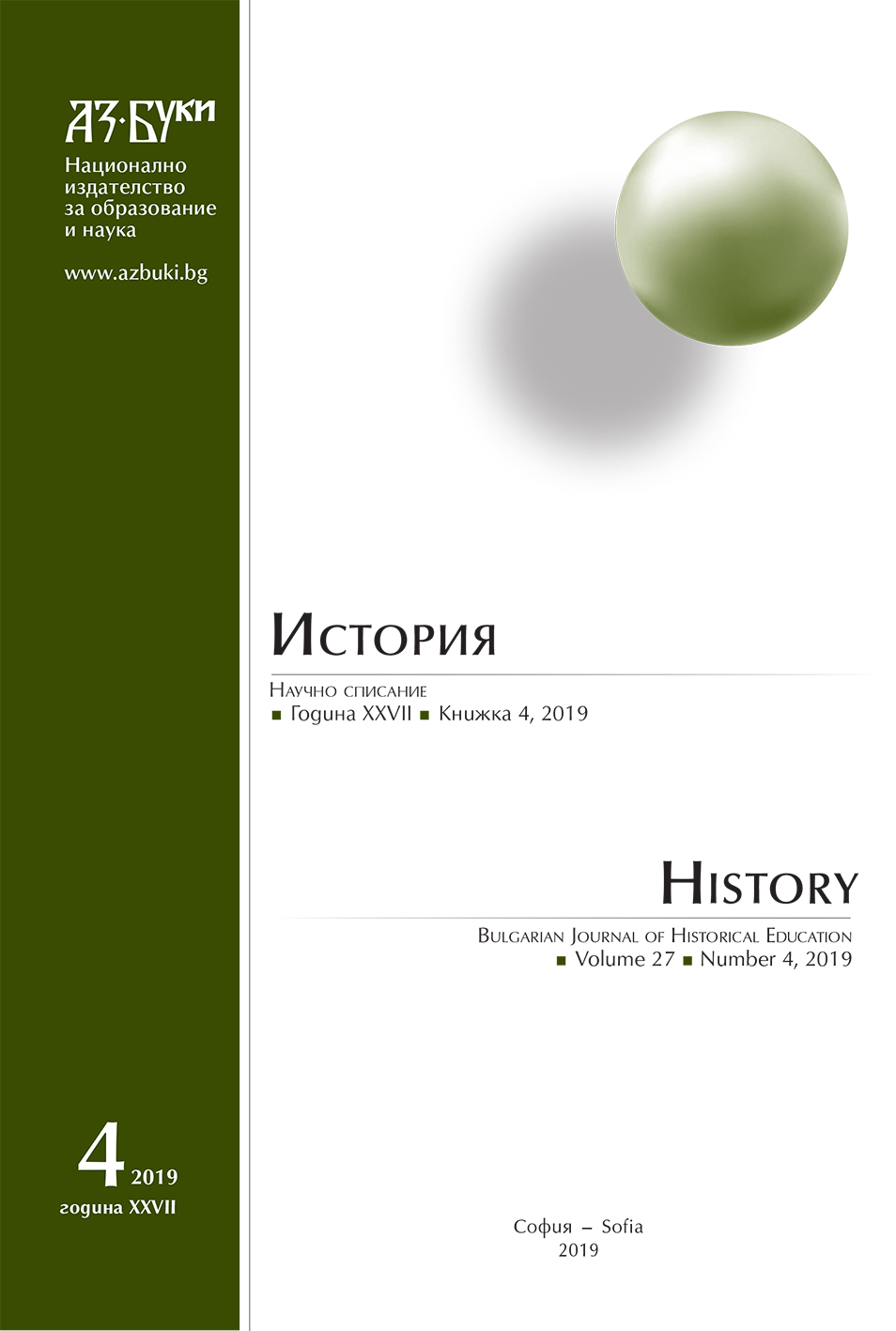

The city of Katowice, which in the Second Republic of Poland was the capital of the Silesian Voivodeship, in the first days of the Second World War became the area of events that until recently were the subject of great controversy. The battles waged both in the city itself and in its surroundings, their intensity and participants, and finally the executions, have only recently been more fully exposed with the help of archival materials, both Polish and German.
More...
The text concerns the circumstances of the German invasion of Poland on 1 September 1939 which started the Second World War. Synthetically, it presents the crisis in Polish-German relations which began in the autumn of 1938. The text also introduces the operational groups of the Security Police and Security Service that entered Polish territory after the Wehrmacht units and whose actions in Poland in the autumn of 1939 were extremely brutal and cruel. Their task was to “clean up” the territory occupied by Germany from “elements” hostile to the Reich and pacify it. After the dissolution of operational groups this activity was continued by in situ Gestapo offices.
More...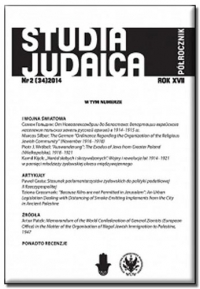
In January 1940, Moshe Merin became the Head of the Jewish Council of Elders of Eastern Upper Silesia. At this point, the community of Jews amounted to almost 100,000 members. Merin actively promoted his major concept of “survival by work.” He believed that only working for the Third Reich combined with obedience and subordination toward the aggressor can guarantee Jewish survival. This policy arose objections, especially among Jewish youth involved in the resistance movement. Until mid-1942 Merin was an influential figure. His wide contacts with the Nazis and relatively good living conditions of Jews in Eastern Upper Silesia dismissed alleged reasons for mutiny. Therefore, during the first two years of the war, the Jewish Council of Elders of Eastern Upper Silesia enjoyed a lot of success. The situation changed in 1943 when the Nazis created ghettos and started forced deportations to KL Auschwitz. The Jewish Council stopped functioning when Moshe Merin and his main associates were deported to the death camp.
More...![„TO WAS TUTAJ TAK STRASZNIE BIJĄ? […] NIE, NAS NIE. TYLKO ŻYDÓW”: ŻYDZI W OBOZIE NA MAJDANKU W ŚWIETLE RELACJI POLSKICH WIĘŹNIÓW](/api/image/getissuecoverimage?id=picture_2018_49070.jpg)
The article draws on a source material from The State Museum Majdanek Archives, a collection of video testimonies recorded in 1987–1989, to develop a fuller picture of social relations among prisoners of different ethnic backgrounds at the Majdanek Concentration Camp. From the fall of 1941 through July 1944, Majdanek functioned as a killing center and a concentration camp for about 150,000 prisoners from different European countries. Drawing on video testimonies as a type of oral history, the article traces the perception of Jews in the camp by Polish prisoners, their social interactions, and the interethnic social boundaries shaped by camp life.
More...